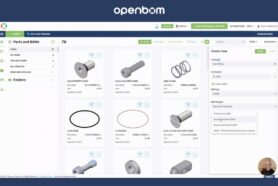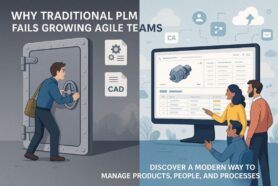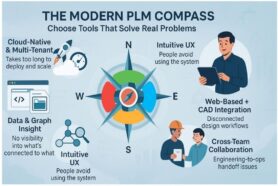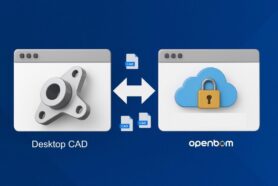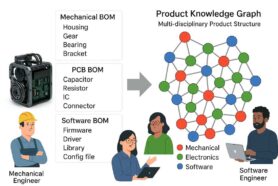
Starting your manufacturing journey can be a daunting task. One of the most important aspects of this journey is sourcing the right parts from the right supplier. Finding the right supplier that can provide high-quality parts and assembly is a struggle.
Suppliers will try multiple ways of convincing you that they are the right supplier for you. They will offer low prices, quick lead times, and favorable payment terms. Somehow, all of these seem to increase over time.
In this post, we are going to outline the biggest mistakes new manufacturers can make when trying to source parts for their products.
Lack of Transparency in the Supply Chain
While having a turnkey supplier sounds great and can add huge value, it can also create uncertainty. If COVID has taught us anything, it’s the importance of being responsible for your supply chain. In addition, having a diversified supply chain is also important as you grow. However, having a lack of transparency in your supply chain can create lead time, quality, and trust issues going forward.
If you’re using a contract manufacturer (CM) and they are consolidating your supply chain then you should make the effort to also get to know who their sub-contractors are. It’s always positive to create relationships with as many suppliers as possible.
Chasing the Lowest Price
Manufacturing a new product is complex. It takes strategy and execution. Unfortunately, many manufacturers are chasing the lowest price when they are sourcing products. This sourcing strategy does not align with trying to have a successful product launch.
When you see a low price, it can mean a few things. Maybe the supplier has a competitive advantage in manufacturing that part. Or, the other reason is that they are jeopardizing the quality of the product.
Not Developing a Quality Standard
Quality standards provide clear and consistent guidelines for ensuring a product meets the required level of quality. These quality standards help to set the expectations of the product and the manufacturing process.
Having a quality standard in place will also help to reduce the risks of product defects and customer complaints.
There is really no excuse to not have a quality standard. Not having this important standard will provide your supplier with the mindset that the product does not have to be consistent because there is nothing objectively stating the quality standard.
Accepting Unfavorable Payment Terms
Establishing payment terms before production is important because it clarifies the financial responsibility of both parties. Agreeing to these terms upfront avoids any misunderstandings that can take place.
Negotiating payment terms is important for the manufacturer because it helps to manage their cash flow effectively. This is usually important for small companies that are launching a new product for the first time. They most likely don’t have all the cash in the world.
One mistake that many first-time manufacturers make is accepting outrageous payment terms. One that suppliers usually try and push for new manufacturers without a payment history is 100% down.
Accepting 100% down is not acceptable for a few reasons.
First, there is no incentive for the supplier to finish the order on time. They already received 100% of the payment so they can push the priority out.
Secondly, it strains your cash flow. If you put down 100%, that is money that you might not get back for 6 months once you take into account the production and shipping timelines. Also, the time it takes you to sell your product.
Not Creating a Golden Sample
The golden sample is important because it’s what you base production on. The golden sample is usually created using mass production tools instead of prototyping methods. Therefore, it should be an exact copy of what you will get in production.
The golden sample is important because it helps you to create an objective standard. This is exactly how the product should be looking like and feeling like. It also proves that your supplier is capable of making the product.
Skipping the Pilot Run
One mistake manufacturers make for the first time is skipping out on the pilot run. The pilot run is a small percentage of the initial purchase order (PO). The goal of the pilot run is to have a trial before you launch full-scale production.
Here are the top reasons to have a pilot run:
- Helps to train the workers
- Ensure no major quality defects
- Ensure production documents are written correctly
- Find bottlenecks in the manufacturing process
However, suppliers might skip the pilot run because they don’t think it’s necessary. However, as a result, they might make some crucial mistakes that push back shipment and increase costs.
What can you do today?
Sourcing a new supplier for the first time can be challenging. There will be hurdles and challenges to overcome. However, there are a few things you can do to ensure this goes smoothly.
Digital transformation will help you to transform your processes to use digital technologies to keep all of your product data together, manage your revisions, and manage an ECR/ECO process. To have a centralized platform that connects your team with your contractors is extremely important to set up modern digital processes to save time and money.
OpenBOM is a cloud-based PDM & PLM platform to manage your engineering and manufacturing data. Companies from startups to Fortune 500s use OpenBOM to create a centralized database to bring in, store, and manage their manufacturing data. With this infrastructure, users also use OpenBOM to streamline both their change management and PO processes.
If you need to improve the way you manage your data and processes, share data instantly, or collaborate with contractors and suppliers. contact us today for a free consultation.
Regards,
Jared Haw
Join our newsletter to receive a weekly portion of news, articles, and tips about OpenBOM and our community.



